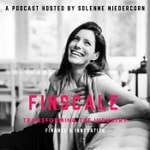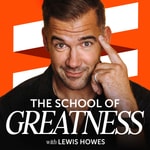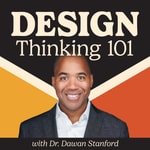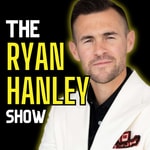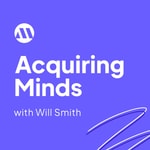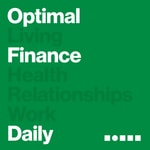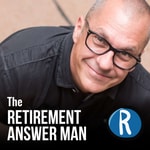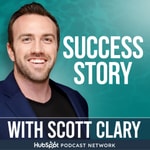egghead.io developer chats – Détails, épisodes et analyse
Détails du podcast
Informations techniques et générales issues du flux RSS du podcast.
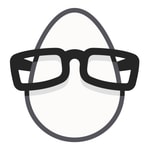
egghead.io developer chats
Joel Hooks and John Lindquist
Fréquence : 1 épisode/34j. Total Éps: 75

Classements récents
Dernières positions dans les classements Apple Podcasts et Spotify.
Apple Podcasts
🇩🇪 Allemagne - technology
14/09/2024#99🇩🇪 Allemagne - technology
13/09/2024#76
Spotify
Aucun classement récent disponible
Liens partagés entre épisodes et podcasts
Liens présents dans les descriptions d'épisodes et autres podcasts les utilisant également.
See all- https://jamesclear.com/atomic-habits
572 partages
- https://www.notion.so/
481 partages
- https://news.ycombinator.com/
129 partages
- https://twitter.com/kentcdodds
115 partages
- https://twitter.com/jhooks
58 partages
- https://twitter.com/swyx
36 partages
- https://github.com/kentcdodds
104 partages
- https://github.com/mjackson
23 partages
- https://github.com/johnlindquist
13 partages
Qualité et score du flux RSS
Évaluation technique de la qualité et de la structure du flux RSS.
See allScore global : 58%
Historique des publications
Répartition mensuelle des publications d'épisodes au fil des années.
Nitro, Vinxi, and RSCs - What's Good with Dev Agrawal
Épisode 75
samedi 7 septembre 2024 • Durée 29:19
Dev and Joel discuss React Miami conference, praising its fun atmosphere and location. They chat about React Server Components, with Dev sharing his experience building a mini framework. They talk about Vinxi, Nitro, and the unjs ecosystem as tools for creating custom frameworks. The conversation touches on Vue's popularity outside web dev circles and non-web dev conferences. They discuss the benefits of TypeScript and strongly-typed APIs. Dev mentions his upcoming talk on durable objects at a conference in Dallas. They end by discussing WebSockets, PartyKit, and platform-specific frameworks.
What's Good?Alex Reardon on Balancing Work, Life, and Large Side Projects
Épisode 74
mercredi 2 juin 2021 • Durée 39:47
Alex took spent the last year and a half creating his course, The Ultimate Guide to Understanding DOM Events, at egghead. Finding the time to work on a side-project like this isn't easy, and it requires one to examine their current priorities in life. Do they want to be a rockstar developer? Or do you want to have a lot of free time to spend with your family?
No matter what sacrifices have to be made. But the best way to handle it is to have candid discussions with the people around you who will be affected the most by these sacrifices. Alex worked it out so that he'd work on his course one day a week.
Despite the cost in time, side-projects are important to Alex. He says that he wouldn't be where he is now in his career without them. They enabled him to grow as a software engineer and to learn things that he wouldn't be able to during his day job. Because of this, he was able to get a more complete picture of how all the pieces fit together, which made him a better dev.
So remember, really be careful about what you are committing yourself to when you take on a large project.
ResourcesAlex ReardonTaylor BellReal Community Can't Be Faked With Rosie Sherry
Épisode 60
vendredi 7 février 2020 • Durée 33:54
Rosie Sherry is both an unschooling parent and the founder of the Ministry Of Testing. There's a disproportionate number of bootstrappers who homeschool their kids, and maybe it's for the same reason why they built something themself instead of fitting into the mold, they think they can do it better.
Ministry of Testing is a company Rosie founded, officially as an online community in 2007, but then formally as a business in 2011. It's a community of software testers who geek out on testing, host conferences, have online talks, host trainings, and participate in an online community.
You can't fake a community like that. You can growth hack numbers, members, et cetera. But, you can't fake community. A strong community has to have people who care, that's what it generally comes down to. The people who lead it have to care, show that they care, and care about the industry as a whole.
Transcript"Real Community Can't Be Faked With Rosie Sherry" Transcript
ResourcesRosie SherryJoel HooksAccessible Design Systems With Sarah Federman
Épisode 59
vendredi 24 janvier 2020 • Durée 26:15
Design systems are your component library, documentation, tools, et cetera. And then there are the operations of it. So like an agile team uses agile methodology, a design system is about making your teams work better.
After Bootstrap, we all ended up building our own Bootstraps. We all like to think that we're special and the problems we're solving are specific to our company, but the reality is the way that your system is built is probably not that special. It's the way that your system is used that's special.
Everybody should be able to access your products, and you can't just make a bunch of accessible components, you have to give your users guidelines on how to use them. Sarah says that accessibility should be considered in every step of development.
TranscriptResourcesSarah FedermanJoel HooksSegun Adebayo is the UX Engineer that built the Chakra UI design system
Épisode 65
vendredi 10 janvier 2020 • Durée 28:10
Segun Adebayo was turned off of web development after struggling with Wordpress' themes and plugins, and so he went straight into UI design entirely using Sketch and Figma for quite some time. It was React that brought him back into the development fold. The way React made it so easy to create components stuck with him.
Segun is still a designer at heart, but his skillset goes beyond design. If he calls himself a designer, it limits what people want from him. By calling himself, a UX Engineer Segun can create higher expectations of his skills, and people come to him for a broader range of problems.
One of the key reasons Segun started his side-project, Chakra UI, was to learn. One of his fundamental values is learning in public. Chakra UI is a passion project for Segun. It breaks his heart that most applications aren't accessible. Accessibility is one of the three core principles of Chakra UI along with composition, and being easy to style. Accessibility was one of the other key reasons for Segun starting Chakra UI. He wanted to create a design system that would make it easier for other developers to make the web accessible.
Transcript"Why Segun Adebayo Calls Himself A UX Engineer Instead Of A Designer" Transcript
ResourcesSegun AdebayoJoel HooksTurn a side project into a career with Nick DeJesus
Épisode 64
vendredi 3 janvier 2020 • Durée 37:00
T7 Chicken was where it all began with Nick's journey into development. Nick had no development experience. Still, he wasn't satisfied with the websites and apps available for Tekken framerate data, so he took it upon himself to learn Android development to create his mobile app.
Nick had the support of the Tekken community and received programming help from people online. Projects like these are so crucial for rapidly growing as a developer, and you won't get the same experience at work. It's making something you need for your community. It's also a place where you are free to experiment with new technologies.
Most of us wouldn't be where we are today in our careers without the help of the online programming community. Nick gives back through his work as a mentor at the Resilient Coders bootcamp.
Resilient Coders is different from most bootcamps. They pay their students to learn to code! They are a non-profit and rely on donations from generous individuals and companies to operate. Paying their students allows them to be truly inclusive by providing an opportunity for people who don't have the privilege of being able to survive without some form of income.
TranscriptResourcesNick DeJesusJoel HooksPersonal Growth From Open-Source And Meetups With Monica Powell
Épisode 61
jeudi 19 décembre 2019 • Durée 37:13
Monica Powell didn't have the most straightforward path to her first job as a developer. She took a couple of years of graphic design in college, took a computer science class, joined a student-led web development agency, and then joined a tech startup where she did email marketing and development. At that point, Monica knew that she wanted to be a developer, but she knew too much to attend a boot camp and not enough to get a job. So, she took classes, landed an internship, and then eventually got hired as a web developer.
Meetups were an important part of Monica's development. When she was in college, she'd attend meet up events to get an opportunity to get off campus and see how people are using technology. She gravitates to women in tech events since she's always found those events to be safe places for her to learn new technologies and meet other people. As of November 2018, Monica is now organizing a meetup called "React Ladies" in NYC!
Contributing to open-source was also important for Monica. Open-source de-mystifies the software that you use. You can look through the source-code of any package that you're using in your project. There's also plenty of opportunities to contribute, and it doesn't have to be code, many projects need contributions to their documentation as well.
Transcript"Personal Growth From Open-Source And Meetups With Monica Powell" Transcript
ResourcesMonica PowellJoel HooksTest Driven Accessibility with Erin Doyle
Épisode 62
mardi 17 décembre 2019 • Durée 38:30
At first, React looked like it might have been a fad, and JSX seemed weird. But, it didn't take long for people to see the power and beauty of it. React makes reuse easy, which makes accessibility a lot easier.
Every time you needed an input, you had to remember all of the accessibility attributes and write it all by hand. With React, you can make a reusable input with all of the accessibility built-in.
You must make your components accessible. There's a broader range of people who need accessible features than you might think. Most of us think of people with visual impairments, but they're also for people with cognitive, auditory, and motor skills issues.
We also don't think about the temporary issues that nearly everyone faces at some point in their lives, such as broken limbs, and medication side-effects. Accessibility features are even helpful under certain environmental conditions like exceptionally bright or noisy places. Even internationalization can be seen as an accessibility issue if your site isn't supporting all languages and localizing all dates. Accessibility is very multifaceted.
Try taking a test-driven approach when it comes to accessibility. Start with the low hanging fruit, static code analysis, and running a scan with a browser plugin. Then try to use your app with accessibility tools yourself, figure out how you can make it a better experience for your users. Finally, have real people with various disabilities test out your app and give you feedback.
TranscriptResourcesErin DoyleJoel HooksWriting The Book On Data Visualization With Amelia Wattenberger
Épisode 63
mercredi 11 décembre 2019 • Durée 35:02
D3.js is the defacto library that people use to create custom data visualizations on the web today. It's powerful and flexible. You can do whatever you want with it. However, that kind of power and flexibility comes at the cost of complexity. You have to know what you're doing, and it takes a long time to learn.
There's existing content written on D3, but there's always room for another voice. With the help of Newline, Amelia wrote the book of over 600 pages, Fullstack D3 and Data Visualization. In this book, she teaches all the theory and application you need to know to make badass visualizations using D3.
Amelia also takes the unique approach of having you use your own dataset! Data that means something to you is going to be much more interesting than anything that could be provided.
As a React developer, Amelia wrote the excellent blog post Thinking in React Hooks. She says that you have to make a paradigm shift with hooks. You can't keep thinking about your components in terms of lifecycle, but instead, think about them in terms of data synchronization.
Transcript"Writing The Book On Data Visualization With Amelia Wattenberger" Transcript
ResourcesAmelia WattenbergerJoel HooksMaking A Fulfilling Career Out Of Multiple Interests With Hiro Nishimura
Épisode 58
vendredi 1 novembre 2019 • Durée 35:39
Hiro started coding HTML and CSS back in middle school so she could make internet friends and talk about anime. She never thought of coding as anything more than a hobby, and she stopped when she began college. She got her master's in special education, but due to a traumatic injury, she had to make a career pivot.
She got a job as a helpdesk engineer and eventually worked her to a sysadmin position at a startup. Hiro quit the comfortable sysadmin job. She asked herself if ten years from now, if she'd be proud that she stuck with the company for another six months. The answer was no. Hiro quit her job to focus full-time on teaching technology.
It was a huge leap, and yet again, she was in unfamiliar territory, but she's been able to find success. Hiro has released four intro-level AWS courses for non-engineers on LinkedIn, writes independent articles, and gets paid to write blog posts for small business owners.
You don't have to be a specialist to find success. Yes, the world needs people who can go all-in on something and produce fantastic work, but it also needs people who can bridge the gaps and solve problems with the breadth of their experiences.
Transcript"Making A Fufilling Career Out Of Multiple Interests With Hiro Nishimura" Transcript
ResourcesHiro NishimuraJoel Hooks